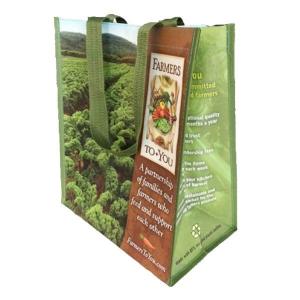County BOL to Consider Paper Carryout Bag Reduction Fee
 As New York State’s ban on single-use plastic bags takes effect in less than a week on March 1, the Westchester County Board of Legislators is taking up legislation to opt into New York’s Paper Carryout Bag Reduction Fee.
As New York State’s ban on single-use plastic bags takes effect in less than a week on March 1, the Westchester County Board of Legislators is taking up legislation to opt into New York’s Paper Carryout Bag Reduction Fee.
The fee would be five cents on each paper bag used at check out. Under the state law, three of the five cents will go to the state’s Environmental Protection Fund. The remaining two cents will help local governments provide reusable shopping bags to residents.
Nancy Barr (D-Harrison), chair of the Board’s Environment and Health Committee, said, “It’s great that New York is finally eliminating single-use plastic bags at most checkout counters, but the real endgame is getting shoppers to switch to reusable bags. Across the country, from Los Angeles to Suffolk County, experience has shown that modest fees on bags is a more effective way of inspiring people to switch to reusables than bans on plastic alone.”
A year after Suffolk County instituted a five-cent fee on all carryout bags, bag use – both paper and plastic – dropped 80 percent, and more than 62 percent of shoppers were bringing their own bags or going bagless.
Board Chair Ben Boykin (D-White Plains) said, “Fees work to lower disposable bag use, and that’s crucial for the environment. But our biggest concern is the potential impact of even this small fee on those for whom an additional 25 or 50 cents per shopping trip is a burden. The State law exempts recipients of aid under certain federal programs from the bag reduction fee. But there are many working people in Westchester who don’t benefit from these programs and who may be challenged by the fee. That’s why we will have to work with the Latimer administration and State officials to get reusable bags into the hands of people for whom the fee may be a hardship.”
Non-biodegradable plastic bags clog local sewers and storm drains, pollute waterways endangering marine life, and are a major source of roadside litter. They’re also derived from fossil fuels and so their manufacture stresses the environment and is non-renewable. Paper bags biodegrade, so they don’t present the same problems for landfills, sewers, storm drains and marine life. But they can have a higher carbon footprint than plastic bags. Paper bags are thicker and heavier so they take up more space to store and ship, meaning the energy used with a switch to paper can be even higher than the energy used in manufacturing and distributing plastic bags.
